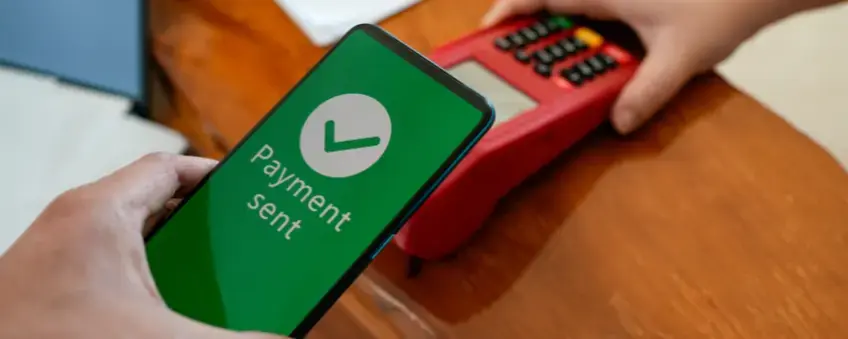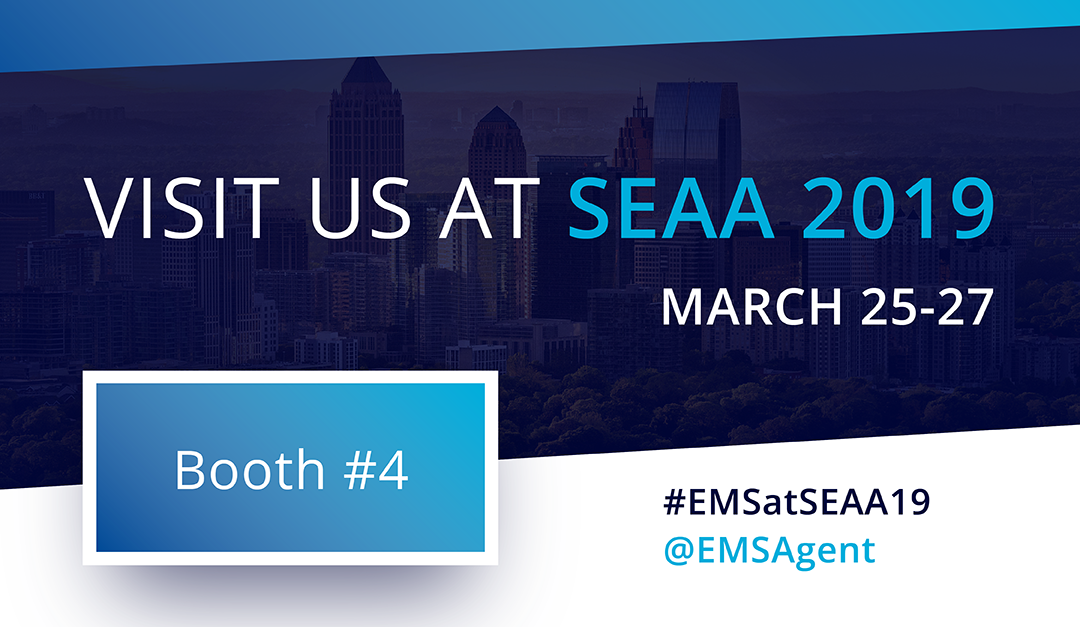While building a payment processing business requires technical expertise and resources, there's no reason non-technical entrepreneurs can't enter the payment processing industry. One of the best options for entrepreneurs interested in the payment space is to become a registered Independent Sales Organization (ISO). ISOs are responsible for reselling a payment processor's services, such as merchant accounts, payment processing, virtual terminals, and more. In exchange for their services, ISOs receive commissions from the payment processing fees generated by their merchants. An ISO can build its own brand, sales process, merchant support platform, and more. It's an entity that provides a great degree of flexibility to business owners. So, how can you start a registered ISO?
This guide explores merchant services ISO programs, how to become a registered ISO, whether it's worthwhile to start an ISO and other related topics. Read ahead if you're searching for a step-by-step guide to entering the payment processing industry!
What is an ISO?
ISO stands for Independent Sales Organization. In merchant services, an ISO is a company that resells payment processing services to merchants. While an ISO doesn't handle the technical elements of processing payments, it provides merchant-facing services, such as onboarding, customer support, software, training, and more. Additionally, many ISOs create custom features and payment processing packages designed for specific types of businesses or sectors. In return, ISOs typically receive a portion of the merchant's payment processing fees as a commission.
So, what is the purpose of an ISO, and how does it benefit payment processing providers? Many payment processors prefer to focus on the backend elements of settling payments. By allowing ISOs to resell their payment services, processors outsource customer support, sales, and other tasks. Likewise, as many ISOs offer custom features, payment processors benefit from a sales network that innovates for its merchants (without having to do any of the heavy lifting themselves).
Types of Services Provided by ISOs
As mentioned above, ISOs take on responsibility for many of the merchant-facing tasks associated with payment processing. Let's explore the types of services provided by ISOs:
- Sales: An ISO is first and foremost responsible for selling payment processing services to merchants. ISOs may specialize in selling payment processing services to a specific industry or type of business.
- Merchant Account Setup: If a client's merchant agreement includes access to a dedicated merchant account, the ISO will help with the setup process to ensure the account is ready for payment processing.
- Customer Onboarding: When a customer signs up for payment processing, the ISO provides the onboarding experience. This may include training merchants on how to use payment software, helping merchants set up specific payment features for their business, and other onboarding processes.
- Hardware: Some ISOs provide payment hardware, such as card readers, POS machines, scanners, printers, and a range of other payment tools. Merchants sometimes buy the hardware, but some ISOs also offer rental options.
- Software: In addition to hardware, ISOs provide a range of payment software tools to ensure merchants have access to modern payment features. Whether it's payment gateways, industry-specific POS systems, or any other type of software, it's the ISO's responsibility to ensure the merchant is well-equipped.
- Merchant Support: Moving forward, the ISO is responsible for providing merchant support to its clients. ISOs set up customer support channels to respond to any payment-related issues that arise.
How to Become a Registered ISO in Merchant Services
If you want to build an ISO, you must follow the correct steps. Reselling payment processing services involves heavy regulation, making it essential that your business follows all the correct procedures, from registering your company to finding a bank sponsor. Below, is a step-by-step guide to becoming a registered ISO in merchant services:
1. Create an ISO Merchant Business Plan
A business plan is the foundation of a profitable company. It's an outline of a business, its plans, its resources, and other factors influencing its success. Not only do business plans help business owners outline their plans for building a company, but they're also a requirement from lenders and investors if a business is seeking funding. Fortunately, there are plenty of business plan templates online to help you streamline the process. Make sure your ISO merchant business plan includes the following details:
|
|
|
|
|
|
|
|
|
|
|
|
|
|
|
|
|
|
However, as an ISO, it's critical to explore sector-specific topics in your business plan. For example, it's essential to decide what types of features you'll offer to your merchants. The features you provide as an ISO will play a major role in your expenses, so outline them early and determine viability.
2. Choose a Legal Structure
One of the most essential components of starting a business is choosing a legal structure. No matter what industry you're entering, the correct legal structure can provide tax benefits, liability protection, and other advantages. Here are four primary options:
Corporation
Corporations are legal entities designed to shield business owners from commercial liability. With corporations, the entity is taxed separately from its owners, so the business pays corporate tax on its profits. Profits are then distributed as dividends to shareholders (and shareholders are responsible for paying dividend taxes). There are two types of corporations available to businesses (S-Corps and C-Corps). Speak with your accountant to determine which is best for your ISO.
Partnership
A partnership is a business entity designed to allow two more partners to share ownership. Partnerships provide some basic liability protections, but partners are much more exposed to liability than corporations. All partners are equally liable for the management of the business and for the business's debts.
Limited Liability Company (LLC)
A Limited Liability Company, or LLC, is a business structure with a range of tax and liability protection benefits. Firstly, it's a pass-through business entity, meaning the LLC's profits and losses carry through to the owner's personal tax return (there's no need to pay any corporate tax if you own an LLC). Next, an LLC provides its owner with protection against some liabilities. LLCs can have multiple owners or individual owners.
Sole Proprietor
Lastly, business owners in the United States don't need to create a formal structure to conduct business — a sole proprietorship is also an option. With a sole proprietorship, profits and losses are reported on your personal tax return. However, this is a limiting business structure type as it doesn't allow you to employ other people or expand your business. Likewise, it doesn't offer liability protection. It's not an appropriate business structure for an ISO.
3. Establish Your Business Name
Once you decide which business structure is most suitable for your ISO, it's time to decide on a name for your new company. Choosing the wrong name can make it challenging to scale your business. While there are no set rules for choosing a name, let's explore some tips for choosing the perfect name for your ISO:
Keep it Short
There's no need for a long, complicated business name. Keeping your business name short makes it much easier to develop a commercial brand. Don't overcomplicate your name.
Make it Memorable
Next, your business name must be memorable. If you want potential customers to remember your business name without having to write it down, it can't be too generic.
Avoid Strange Spellings or Abbreviations
While it can be tempting to use creative spelling or abbreviations when choosing a business name, it can do more harm than good. If a customer is trying to locate your business after hearing your name, using an alternative spelling of the name may make it challenging for them to find.
Check It's Available
Lastly, it's time to check if your business name is available. In most states, the government provides business name checkers to ensure you don't use another company's name. However, you should also search Google to see if your name is being used by anyone else before you register.
4. File with Your State
Now it's time to officially register your business. Most of the business registration process occurs at the state level, so you won't need to worry about filing any Articles of Incorporation with the Federal Government. The business registration process and cost vary depending on the state where your business is located, but in most cases, it will resemble the following steps:
- Obtain a registered agent (in many states, you can't act as your own registered agent)
- File a Certificate of Formation with your Secretary of State
- Register for business licenses with any state or local authorities that require them
5. Acquire Permits and Licenses
Next, it's time to acquire permits and licenses to ensure you're conducting business legally in your area. Again, this is a process that varies significantly depending on your state and local municipality. Some regions have extensive permitting requirements, while others don't require formal licensing. Check with state and local authorities to find a full list of permits and licenses before you begin selling payment processing services.
6. Register for Taxes
After you register your business with your state and acquire any necessary permits and licenses, it's time to register your business for taxes. This is one part of the ISO formation process that involves the Federal Government. Unless you are a sole proprietorship, your business must apply for an Employer Identification Number (EIN). This number acts as a unique identifier for your business in the same way that a Social Security Number (SSN) acts as a unique identifier for individual taxpayers. If you're a sole proprietor, you don't need an EIN. However, you can apply for an EIN if you want to have a separate tax identifier from your SSN.
Fortunately, applying for an EIN is a straightforward process. The easiest application option is via the IRS website — you can find the application portal here. Alternatively, mail, phone, and fax applications are available.
7. Document Your Business Rules
Before reaching out to payment processors to resell their services, it's critical to create internal business rules so the ownership group is on the same page. Here are business rules to consider for your ISO:
- Determine when meetings can be called
- Determine how profits will be distributed amongst the owners or partners
- Document information about your business's financial planning, such as budgets, accounting standards, and more
- Establish roles and responsibilities for the directors and key employees
- Establish clear business rules to help prevent misunderstandings and conflicts by setting clear expectations for employees, stakeholders, and partners
8. Find a Merchant Acquirer to be Your Bank Sponsor
Up to this point in the process, starting an ISO resembles the steps for starting any type of business. Now that you have built the foundations of a new business, it's time to explore some sector-specific steps you need to take to establish an ISO.
Find a merchant acquirer to be your bank sponsor before you approach card associations for registration. While you can attain multiple sponsors in the future, you must focus on choosing one during the initial setup process. Approach merchant acquirers and outline your case for becoming an ISO. You must present evidence you have the capability to run an ISO and resell their merchant services. If it's challenging to find a sponsor bank, consider the following tips:
Approach Sponsor Banks with ISO Program: Prioritize working with sponsor banks that advertise an existing ISO program. Banks with publicized ISO programs are much more approachable and have experience working with individuals building new ISOs.
Attend Payment Processing Events: Networking with payment processors, merchant acquirers, and other payment stakeholders can help you find a sponsor bank. Consider attending payment processing events and conferences to build your network.
Improve Your Documentation: Lastly, if you still struggle to find a sponsor bank, you may need to improve your documentation. This means your business plan and pitch may need an upgrade — make sure potential sponsors understand your professionalism and industry experience.
9. Register with card associations
Next, it's time to register with all the major card associations. Your sponsor bank essentially acts as a referral to the card associations, but you'll still need to submit an application and undergo a vetting process. Registering with card associations isn't cheap. Most major card associations, such as Visa and Mastercard, charge around $5,000 to register, as well as $5,000 for annual renewals.
Fortunately, your sponsor bank will help you during the card association registration process. They may provide guidance and help you communicate with the card associations. However, if the card associations don't feel comfortable with your application, your sponsor bank may choose not to proceed with registering your ISO. Just because you've found a sponsor bank doesn't mean your registration with card associations will run smoothly.
10. Gather Business Information & Review Contract
Now that you've submitted your application, it's time to wait for a response from the card associations and your sponsoring bank. Gather all of your business information — you may need to provide it to your bank sponsor or the card associations if they have any additional questions.
If approved, you will receive a contract to sign. Read it carefully and consult an attorney if you have any questions about its contents. The contract will be the foundation of your ISO's ability to earn money reselling merchant services, so you must make sure it's viable for your new business. Once you sign it, it's too late to make changes!
11. Register with Your Bank Sponsor
Last but not least, it's time to officially register. If the card associations and your bank sponsor inform you that you've passed the vetting process and you sign the contract, it's time to pay your registration fees and begin reselling merchant services. While registering an ISO can feel like climbing a mountain, once the process is over, you have the opportunity to earn exceptional commissions by reselling merchant services to business owners!
Is it Worth Pursuing to Become a Registered ISO?
Running an ISO is a sales-intensive process—you must be willing to work hard to acquire merchants. There are many big players in the industry, so it's critical to separate your services and your sales process from the industry giants if you want a chance at success. However, there are rewards in store for those who succeed in this industry.
Let's explore some of the unique benefits associated with setting up an ISO:
1. Build Your Own Service
While ISOs require a sponsoring bank to provide backend payment processing services, they have the freedom to build their own merchant-facing service. Whether it's offering industry-specific tools, 24/7 merchant support, or any other tailor-made features, ISOs have independence when it comes to building payment solutions for their merchants.
2. Benefit from Recurring Revenue
In most cases, ISOs benefit from recurring revenue from their merchants. While remuneration may vary depending on the sponsoring bank, ISOs typically receive a commission from the payment processing fees charged to merchants. This means the more money a merchant processes, the more money the ISO receives in commission. By building numerous long-term relationships with merchants, you can generate significant recurring revenue from ISO credit card processing.
3. Utilize Independent Sales Agents (ISAs)
ISOs don't have to do all the selling themselves. They can also hire Independent Sales Agents, or ISAs, to recruit new merchants. ISAs are independent contractors tasked with selling an ISO's merchant services to businesses.
4. Multiple Revenue Streams
While much of an ISO's revenue comes from commissions on processing fees, there are other avenues for ISOs to generate income:
Monthly Service Charge: Some ISOs have monthly service charges. This is an option if you want to generate subscription income from your merchants, but as many ISOs don't charge fees, it may harm your sales efforts.
POS Software: ISOs often provide access to POS software to make it easier for merchants to process payments, manage staff, track sales, and more. In many cases, ISOs provide industry-specific POS software to help merchants optimize their business processes. ISOs usually receive a commission for reselling third-party payment software.
Other Business Software: ISOs may also offer access to other types of software, such as loyalty program software, email marketing software, and more.
POS Hardware: ISOs often sell or lease POS hardware to their customers. In some cases, ISOs produce their own hardware (although this is capital intensive), while others resell hardware from other manufacturers and receive a commission on the sale.
5. Future Growth Potential
Research suggests the global payment processing industry is set to expand at a compound annual growth rate (CAGR) of 9.5% until 2030. If you're an entrepreneur seeking an industry with a bright future, it's hard to overlook the payment processing sector!
What to Consider When Choosing a Bank Sponsor or Processor Partner
One of the largest factors determining an ISO's success is its bank sponsor or processing partner. If you don't have the correct partner, you may struggle to attract customers or run into support issues once your ISO is up and running. Here are factors to consider when choosing a processor partner or bank sponsor:
1. Reputation
First and foremost, only work with a bank sponsor or processing partner with a longstanding, positive reputation. As you are reselling the services of your partner, it's essential they have a robust reputation that your merchants can trust. If your partner has a reputation for poor quality services, hidden fees, and other issues, many of these problems may pass onto your merchants, leading to unhappy customers. You are an extension of your processing partner, so only associate with payment processors you can trust.
So, how do you find out if your processor partner or bank sponsor is trustworthy? Search for stories online, read reviews on consumer watchdog groups, and speak with others in the industry. This is one example when having a network in payment processing can pay off.
2. Rules
Next, it's time to consider the rules imposed by your processor partner or sponsoring bank. Do they restrict specific industries or types of transactions? If so, this will impact the type of merchants you can partner with, so it's essential to avoid sponsoring banks with strict industry policies.
3. Support
Another essential factor to consider is the support options available with your sponsoring bank or processor partner. While it's an ISO's responsibility to provide customer support and engagement to merchants, the ISO must be able to rely on its processor partner to resolve technical issues or answer essential questions. If you don't have immediate access to your processor partner, you may let down your merchants if major issues arise. Always prioritize sponsoring banks with 24/7 ISO support.
4. Features
It's critical to work with processor partners or sponsoring banks with innovative features for your merchants. So, what are some examples of features to look for?
Payment Flexibility: Work with processor partners with access to a range of payment options, including all major card brands, digital wallets, and more.
Payment Security: With fraud being a major issue for many merchants, it's essential to have a processor partner with a focus on payment security. Strong anti-fraud tools are key if you want to keep your merchants happy. Around 60% of Americans have now been victims of credit card fraud, and around 45% have experienced multiple cases of fraud, meaning it's more essential than ever to prioritize strong fraud protection.
Next-Day Funding: Allowing merchants to access next-day funds will make it easier for them to manage cash flow. Prioritize ISOs with quick funding timeframes or you may face frustrated merchants.
Agent Opportunities with EMS ISO Program
Are you seeking an introduction to the world of ISOs? At EMS, our ISO Agent Program is the perfect route for ambitious individuals wanting to enter the payment processing industry. Our EMS ISO Agents sell payment processing services to merchants throughout the country, ensuring businesses stay connected to the industry's most advanced payment tools. Our ISO Agent Framework allows individuals to sell payment processing services without setting up a separate ISO.
As an industry leader in payment processing, we're the perfect partner to have if you want to provide world-class payment solutions to your clients. Our merchant services ISO program offers quick approvals, white-label agent portals, sponsored registration, innovative point-of-sale solutions, and a range of other benefits. So, what are you waiting for? Contact us today to take your first step into the payment processing industry!






